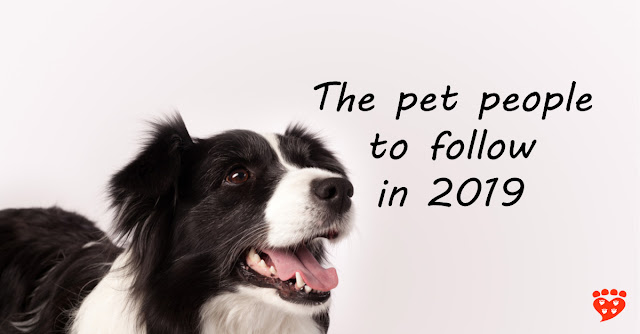A Love Letter to Loss: Missing Calvin in the Middle of Covid
Losing a pet at this time simply adds to the difficulties of the pandemic, says Dr. Shelly Volsche.
 |
| Shelly Volsche's late dog, Calvin. |
By Shelly Volsche, PhD
My Dearest Loss,
Lo! How I love to hate thee.
Yea, I concede I love thee.
We cannot deny that 2020 tested us all. Social and economic instability, immense restructuring of our daily routines, wildfires, epic storms, and, oh yes, that global pandemic. “Trying” and “unprecedented” are understatements at this point.
And with all that came a profound, punctuated loss of life. Human … and nonhuman.
It is not my goal to diminish the human loss by turning our focus to nonhumans. Rather, I want to remind us that for many, the loss of our companion animals served to compound the difficulties of this year.
Underlying most of my research is the concept of pet parenting. And no, I do not mean the trendy, marketed identity of mommy and me t-shirts and onesies (although, hey, who am I to judge?). My goal is to describe and understand the degrees of time, finances, and emotionality invested in nonhuman companions.
This page contains affiliate links which means I may earn a commission on qualifying purchases at no cost to you.
Anthropologists like Sarah Hrdy and Alyssa Crittenden suggest humans are cooperative breeders. This means we are quite literally evolved to alloparent – providing support to others who are not our biological offspring. And as companion animals move deeper into our homes and closer to our hearts, this means many of us alloparent them, too. We invest increasing amounts of love and energy in their care, and especially when there are no children in the home (for whatever reason), this can result in a truly parent-child type relationship.
This is why I want us to pause and consider the nonhuman lives lost. And the impact this loss has on the humans left behind.
For a growing number of individuals, companion animals are their children. And no, not as surrogates, but as a chosen bond. This can occur for many reasons, but the result is the same – losing their dog, cat, or other deep bond can have a similar, soul searing effect as losing a child.
The relationship formed can dramatically influence how we experience that loss. For some, a dog is a sentient, loving being, but still … a dog. For others, the bond with their companion mimics those formed with human others, with its negotiation of roles and appreciation of individual personality and needs. Further mirroring our connections with humans, the loss of a companion animal is influenced by a variety of factors – including how attached we were.
As a result, experiencing this loss may go beyond crying. Hallucinations, dreams, and other extensions of our psyche search for ways to fill the space. We may cuddle a favorite blanket, lose our appetite, or have panic attacks that our companion is not gone, only lost and scared. The psychological can become physical.
Evolutionary psychiatrist Randolph Nesse explains that this grief related searching behavior results from our desire to secure the safety of our social groups. When one member of the group is missing, we long for their safe return. Hence, we go looking for them, trying to put our social group back in one piece.
This is likely also why our grief is worse in the beginning but begins to subside when we are reunited with the remains of our companion. Personally, while I found no solace in “The Rainbow Bridge,” I still found comfort in finally having Calvin home. Though his ashes no longer were him, with his quirky sense of humor and joie de vivre, I was no longer looking for him at my feet. I had found my missing group member.
 |
| Calvin's memorial. |
It is not uncommon for individuals to build small (or, sometimes large) memorials to their companion animals in order to maintain that bond. Janice Habarth and colleagues found a wide range of ways which bereaved guardians seek to continue their bonds, including holding on to possessions like collars and favorite toys. In some cases, these memorials become even more personal and permanent, in the form of tattoos.
Often, those on the “outside” of grief want to help. And while advice is given with the best of intentions, it does not always land well. Grieving pet parents want the return of their lost one, not a replacement nor a reminder that society does not value companion animals in the same way it does human life.
Instead, listen. Offer a safe place for that person to go. There is already enough stigma associated with investing one’s parental energy in a nonhuman animal. Truly helping a grieving pet parent means keeping an eye on their health while giving them the space to work through the loss at their own pace.
It is not a coincidence that particular times of year – like the holiday season or anniversaries – bring unbridled reflection on our losses. It is during these times of caring and cheer that the holes left by lost loved ones are a bit more noticeable. For many of us, this includes our nonhuman loved ones, too.
And so, dearest Loss,
While I aggress at you in the depths of my despair,
I confess, it is in your embrace that I am most aware
How deeply I have loved.





